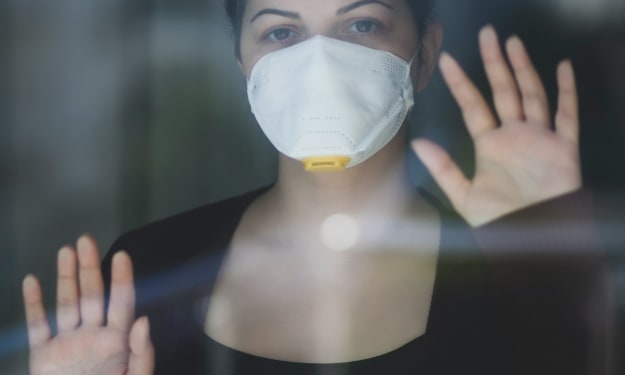
Prostate issues are common among men over 40. This small, walnut-shaped gland surrounds the urethra in men and produces a fluid that, when mixed with sperm, forms semen. As men age, the prostate enlarges and can sometimes become swollen or enlarged due to conditions like benign prostatic hyperplasia, prostatitis, or cancer. All men, regardless of age, can be affected by prostate problems, which is why it's essential to monitor prostate health. Fortunately, there are simple measures to reduce and prevent prostate issues.
1. Eat more fruits and vegetables
Fruits and vegetables are rich in compounds that fight inflammation and cancer, such as polyphenols, antioxidants, minerals, vitamins, and fiber. Tomatoes, broccoli, cauliflower, bok choy, cabbage, Brussels sprouts, pink grapefruit, watermelon, papaya, and guava are especially beneficial for the prostate. Leafy green vegetables like spinach, lettuce, and kale also provide cancer-fighting compounds like folic acid, vitamin D, and curcumin. Add these foods to your daily diet to support prostate health!
2. Eat more plant-based proteins and reduce animal fats
Avoid diets high in animal fats, particularly dairy and red meat, because excessive red meat consumption increases the risk of prostate cancer. Choose lean protein sources like fish and chicken, but avoid grilled meat, which produces carcinogenic substances. Instead, opt for baking, steaming, or broiling.
Animal fats reduce antioxidant production, which is crucial for prostate health. Fish, rich in omega-3s, lowers the risk of prostate issues. Tuna, herring, and salmon are excellent choices, while nuts and flaxseed offer alternatives for those who dislike fish.
Favor whole, natural foods that are high in fiber, as well as soy, which can be found in soy nuts, flour, or tofu. Foods rich in selenium, such as wheat germ, tuna, beef liver, eggs, sunflower seeds, cashews, sesame seeds, mushrooms, onions, garlic, and kidneys, promote prostate health and reduce cancer risk.
3. Achieve a healthy weight
Obesity is linked to various prostate issues, including cancer. If you're overweight, losing weight, especially abdominal fat, lowers the risk of benign prostatic hyperplasia (BPH). Reducing the size of your prostate can also alleviate troublesome urinary symptoms. Weight loss further helps reduce the risk of prostate cancer and relieves prostatitis.
4. Exercise regularly
Moderate or intense physical activity reduces the risk of benign prostatic hyperplasia (BPH), urinary issues, and prostatitis. Regular exercise also helps reduce stress, relieve tension, improve immune function, and maintain a healthy hormonal balance, all of which greatly benefit prostate health.
Aim for at least 30 minutes of moderate or intense physical activity daily, such as walking, swimming, running, or cycling. To prevent monotony, vary your exercises and invite friends to join you.
5. Drink tea
Green and hibiscus teas are packed with powerful antioxidants. Studies show that regularly drinking these teas can help prevent prostatitis, benign prostatic hyperplasia (BPH), and prostate cancer. Green tea, in particular, slows the progression of aggressive prostate cancer.
Choose caffeine-free teas, as caffeine can irritate the prostate and bladder, worsening prostatitis symptoms. Also, cut down on energy drinks, coffee, and soda to limit caffeine intake.
Water is also beneficial for prostate health. Stay hydrated by drinking at least 8 glasses of water daily, and increase your intake before and after exercise. This helps the prostate function properly.
6. Avoid smoking
Smoking affects every cell in the body. When a cigarette burns, it releases carcinogenic substances. While smoking has less impact on low-grade prostate cancer, it increases the risk of aggressive prostate cancer. Heavy smokers are 24-30% more likely to die from this cancer than non-smokers, and tobacco also raises the risk of disease progression after diagnosis.
Studies also show that smoking promotes benign prostatic hyperplasia (BPH) and worsens inflammation. Additionally, avoid excessive alcohol consumption and ensure you get enough sleep for better prostate health. A healthy sex life is also beneficial for the prostate.
7. Talk to your doctor
If you have a family history of prostate cancer, inform your doctor. Having a father or brother with this condition increases your risk of developing prostate cancer. Discuss your personal risk factors with your doctor and the appropriate screenings as you age. Follow dietary advice and be mindful of risk factors.
Before starting a new exercise program, consult your urologist. Inform them if you experience any of the following symptoms: discomfort or pain in the rectal or pelvic area, blood in the urine or semen, or difficulty or pain during urination.
You may wish to read this article to learn more: Here's One Tip That Can Help You MAINTAIN A HEALTHY PROSTATE WELL INTO OLD AGE
Disclaimer: Please note that this article may contain affiliate links. This means that if you click on these links and make a purchase, we may receive a small commission at no extra cost to you.
About the Creator
Rav Oldej
I always try passionately to learn everything related to human nature...






Comments
There are no comments for this story
Be the first to respond and start the conversation.